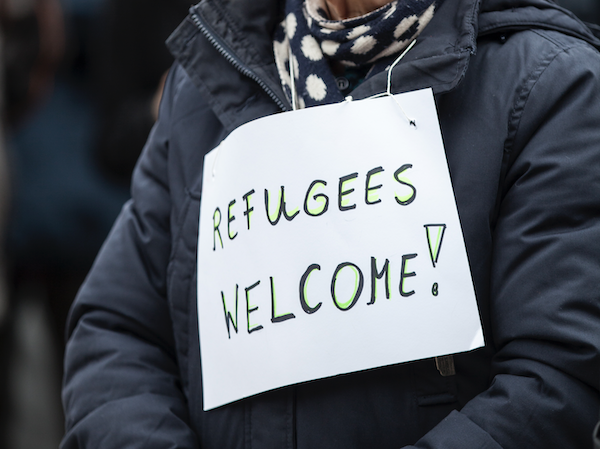Over half of Syrians are in work but social isolation looms

Over half of Syrians who came to the Netherlands between 2014 and 2016 are in paid employment but a lack of social contact and loneliness are taking their toll, a survey by the justice ministry’s scientific research body WODC shows.
The Netherlands is home to 150,000 Syrians, 32% of whom have some form of higher education. Some 55% are in work, mostly in lower-paid jobs in transport or hospitality, or other jobs that do not do not tally with their level of education, the survey found.
Some 3,000 Syrians who fled to the Netherlands between 2014 and 2016, participated in the survey which gauged their integration into Dutch society at three different moments between 2017 and 2022.
“We see that labour participation among Syrians has been growing since they arrived and that is continuing. There are more people in work, with fixed contracts and more hours. On the other hand the positive development of the first few years is stagnating or even declining. People have fewer social contacts and a big group is socially lonely,” WODC head researcher Mieke Maliepaard told broadcaster NOS.
Most Syrians are having trouble managing financially, Maliepaard said, and just 18% have a nest egg of over €1,300 to cope with financial emergencies compared to 84% of the general population.
Participants in the survey cite difficulties to get jobs or had trouble working in their original profession.
Surgeon Belal Alrefaj (35), who fled Syria in 2016 with his pregnant wife, said that despite hundreds of applications for work experience places and traineeships, he could not get a foot in the door.
“I was always turned down, usually without a reason. They tell me to get a Dutch diploma, get work experience in a Dutch hospital,” he told the broadcaster.
Alrefaj, who volunteered as a health board test assistant during the pandemic, is now on benefits and works as volunteer home care help. He is currently studying to improve his Dutch so he can certify his Syrian qualifications and build on them.
Some 60% of Syrians are trying to get their diplomas certified, Maliepaard said. “You would want everyone to do this but people think it won’t help or they don’t have the right documents. But the people who have done it are relatively positive about the result.”
The time it takes to take integration hurdles is leading to more social isolation and loneliness, the survey showed. Some of participants said they no longer have the energy to maintain social contacts because they have so little perspective to better their situation.
Thank you for donating to DutchNews.nl.
We could not provide the Dutch News service, and keep it free of charge, without the generous support of our readers. Your donations allow us to report on issues you tell us matter, and provide you with a summary of the most important Dutch news each day.
Make a donation